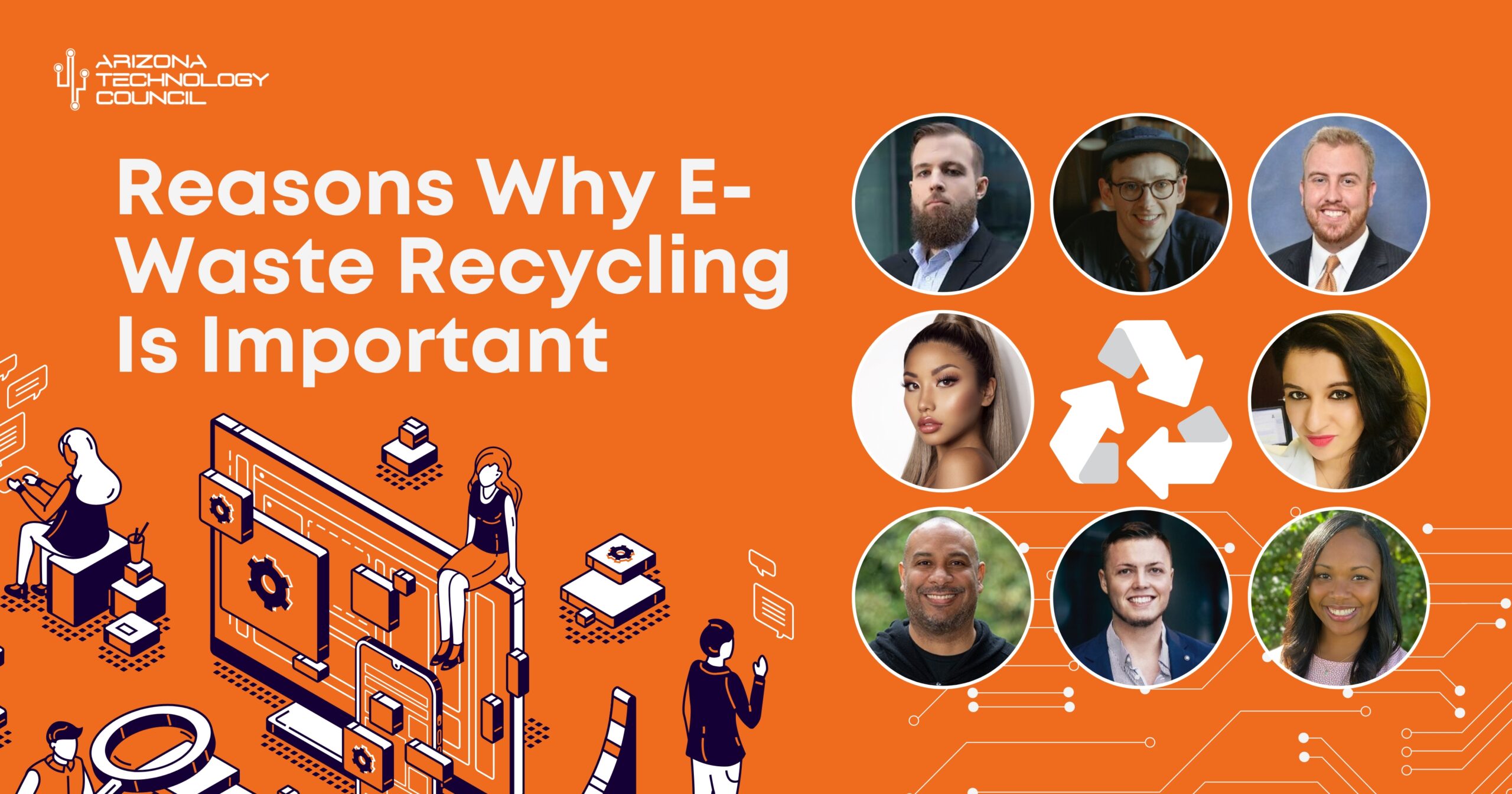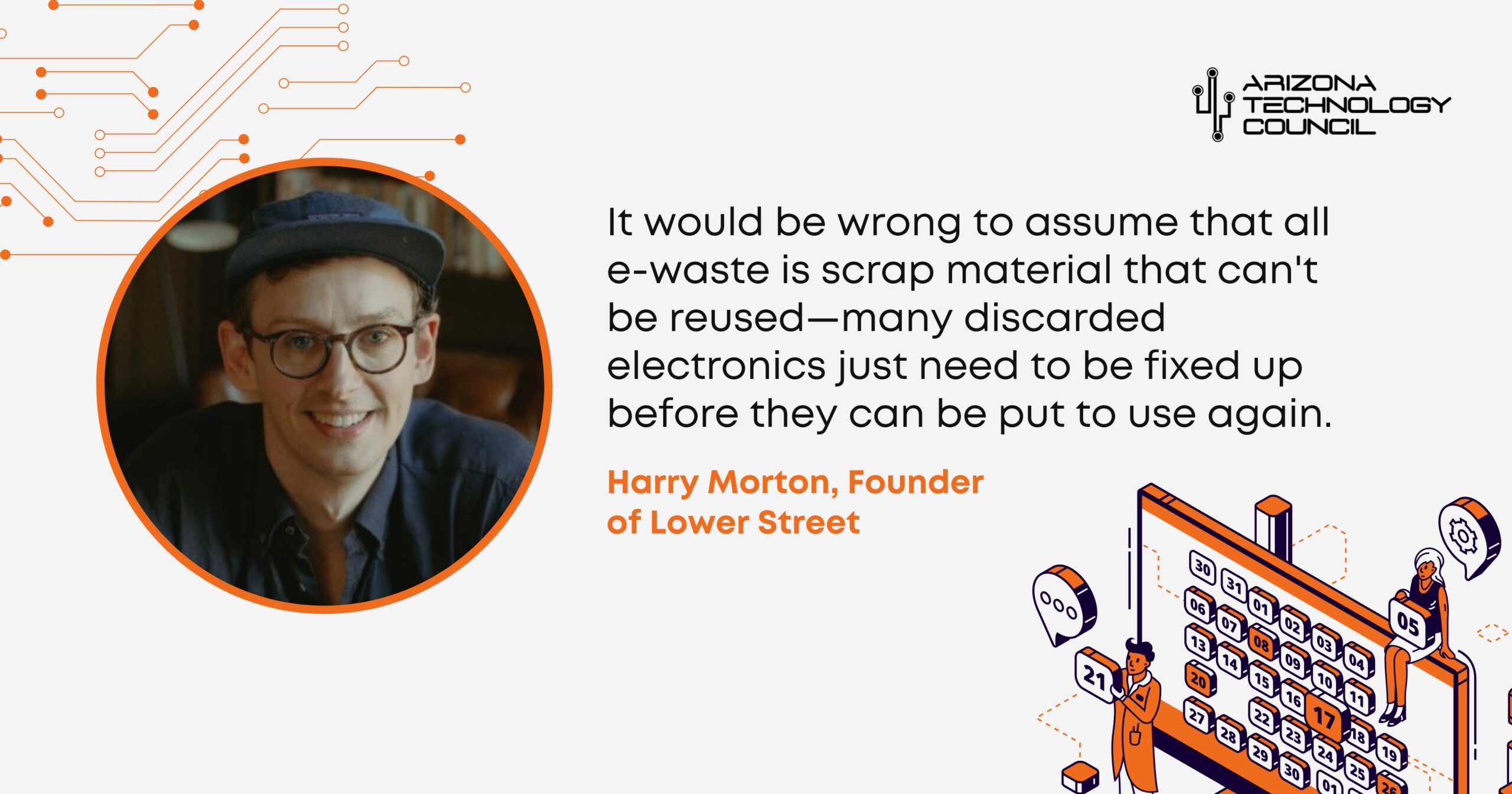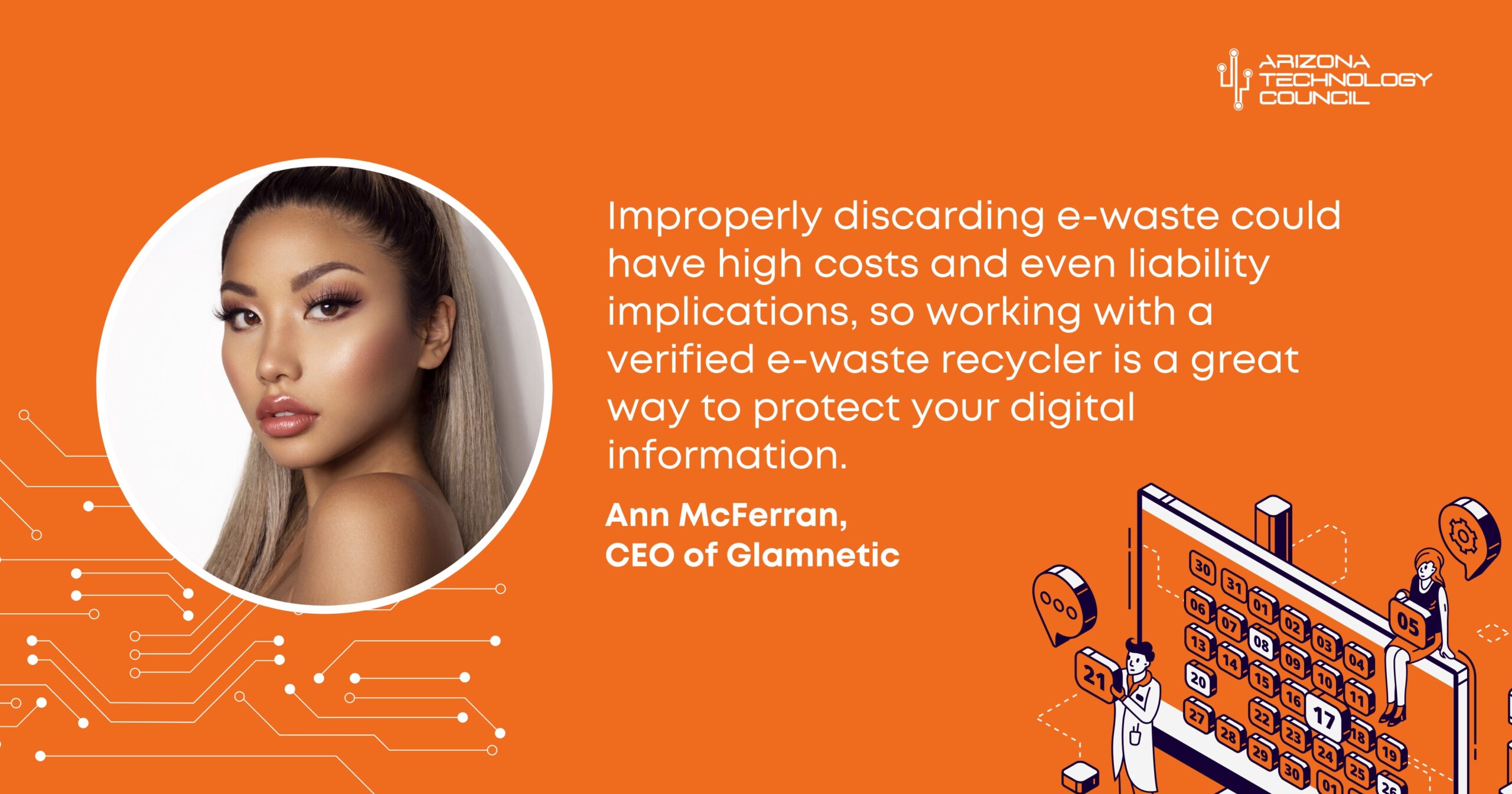10 reasons why e-waste recycling is important

Why is e-waste recycling important and how does it benefit your business/community?
To help you better understand the importance of e-waste recycling, we asked CEOs, founders, and other professionals this question for their best strategies. From preventing contamination to spreading awareness, there are several recommendations that may help you get behind this critical initiative.
Here are 10 reasons why these business leaders recycle e-waste:
- Prevents the Contamination of Ecosystems
- Provides Refurbished Electronics to the Community
- Keeps Compliance With E-Waste Laws
- Protects Essential Company Information
- Creates New Jobs
- Supports the EPR Model
- Safeguards Customer Data
- Highlights Your Business Reputation
- Reduces Carbon Footprint & Saves Money
- Spreads Awareness
Prevents the Contamination of Ecosystems
E-waste is any electronic device or component that is no longer working or wanted. While many believe that simply throwing away old electronics is harmless, the reality is that e-waste can contain hazardous materials that can contaminate the environment if disposed of irresponsibly. For example, lead, mercury, and cadmium are all standard electronic components that can be very harmful if released into the environment.
Fortunately, recycling facilities can process e-waste to remove those materials and prevent contamination. In some cases, they can even refurbish devices to extend their lifespan. This helps protect the environment from toxic material and keeps old electronics out of landfills where they would quickly break down and release harmful chemicals into the ground.
Michael Sena, Founder & CEO, SENACEA
Provides Refurbished Electronics to the Community
It would be wrong to assume that all e-waste is scrap material that can’t be reused—many discarded electronics just need to be fixed up before they can be put to use again.
If e-waste can be correctly categorized and refurbished, you can donate these electronics to a worthy cause in your community. Not only are you keeping these devices out of landfills but you’re breathing new life into them so that someone can benefit from their use.
Harry Morton, Founder, Lower Street

Keeps Compliance With E-Waste Laws
Every business should be accountable for the responsible recycling and disposal of the electronic waste it generates. And complying with these regulations is a pretty good reason to pay attention to your company’s e-waste recycling process.
Laws like the Electronic Waste Prevention, Reuse, and Recycling Act ensure that the devices and gadgets you no longer use do not end up in landfills.
A business is primarily responsible for its e-waste recycling program. It has to arrange for the transportation and recycling of the e-waste they produce with the help of local municipal bodies and in line with state or federal laws.
While every state has its own specifications, a business must always know violations and failure to comply with these regulations can attract heavy fines.
Riley Beam, Managing Attorney, Douglas R. Beam, P.A.
Protects Essential Company Information
Properly recycling your e-waste not only means doing good for the environment but is also essential to protect your company’s digital assets and information.
Improperly discarding e-waste could have high costs and even liability implications, so working with a verified e-waste recycler is a great way to protect your digital information.
They will destroy the data on hard drives before they recycle them. Make the extra effort to recycle your e-waste, and you will take a critical step in protecting essential company data.
Ann McFerran, CEO, Glamnetic

Creates New Jobs
One reason e-waste recycling is important is to create new jobs because recycling e-waste requires specialized skills and equipment that can build new machines and products.
This helps businesses and communities grow by providing more opportunities for employment, which benefits the economy overall. Additionally, recycling e-waste reduces the environmental impacts associated with mining raw materials and disposing of electronic waste in landfills.
For these reasons, it is critical that we continue to promote e-waste recycling programs in order to encourage businesses and communities to take action for the sake of our environment and economy.
Amira Irfan, Founder & CEO, A Self Guru
Supports the EPR Model
Recycling e-waste supports the extended producer responsibility (EPR) model. Planned obsolescence is the current economic model for manufacturers of electronic devices.
This means that more people will end up throwing out their devices in order to purchase a unit with newer features. The model incentivizes irresponsible behavior by manufacturers and has an outsized negative impact on the environment because of the toxins that come with e-waste.
Recycling e-waste supports the EPR model and encourages manufacturers to innovate toward longer-lasting devices that cut down the amount of toxic e-waste. This means they expose fewer toxins to the community.
Liza Kirsh, Chief Marketing Officer, Dymapak
Safeguards Customer Data
While everyone should participate in safe e-waste recycling practices, discarding your electronics the old-fashioned way can risk your most sensitive information. Even if your device no longer turns on, others can easily access the sensitive data stored on it.
When you send your e-waste to a certified recycler, you can rest assured that your data is safer thanks to the strict data destruction regulations they adhere to before they touch your device. While there’s still the potential for data theft, the chances are relatively small when you use a reputable recycler.
Businesses should always use e-waste recyclers or risk potentially business-destroying loss. Trade secrets, business data, and even customer data may be stolen, ruining your reputation, customer trust, and so much more. Keep your data safe and recycle all electronics.
Ruben Gamez, Founder & CEO, SignWell
Highlights Your Business Reputation
There are several reasons e-waste recycling is important, but one of the most important is that it can help to improve your business reputation.
When you recycle electronic waste, you are doing your part to protect the environment and keep our planet healthy. This is something that consumers increasingly appreciate, and it can help to set you apart from your competitors.
In addition, electronic recycling helps to conserve natural resources. By recycling electronics, we can reuse valuable materials like aluminum and copper rather than mining for new materials. This helps to reduce the environmental impact of manufacturing new electronics, and it is something that consumers increasingly value (Especially young people).
Connor Ondriska, Co-Founder & CEO, SpanishVIP
Reduces Carbon Footprint & Saves Money
E-waste recycling is critical in the fight against climate change. Burning e-waste releases toxic chemicals into the atmosphere, which contributes to global warming. Recycling e-waste reduces greenhouse gas emissions and helps to preserve the environment.
Besides its impact on climate change, e-waste recycling is also important for human health. Many of the materials found in electronic waste, such as lead and mercury, are toxic and can cause serious health problems if not properly disposed of. Recycling e-waste helps to prevent these materials from harming people and the environment.
E-waste recycling also benefits our bottom line. By recycling electronics, we can save money on disposal costs and even earn revenue from the sale of recycled materials.
E-waste recycling is a win-win for our business and the environment. It’s an easy way to do our part to protect our planet and its resources, while also saving money and even earning additional income.
Rajesh Namase, Professional Blogger, TechRT
Spreads Awareness
When your company commits to e-waste recycling, you don’t just act responsibly but also encourage others to do so. Your company employees are the first to take notice. When they see the brand they work for going that extra mile to prevent causing damage to the environment, they take this message home with them and do the same.
You can also share your recycling goals with your clients and vendors, even encouraging them to partner with you. Moreover, since it shows your brand in a wonderful light, you can also share this news over social media and talk to your audience about making their own commitments to recycling.
Ashley DeJesus, Marketing Manager, AIS Network
